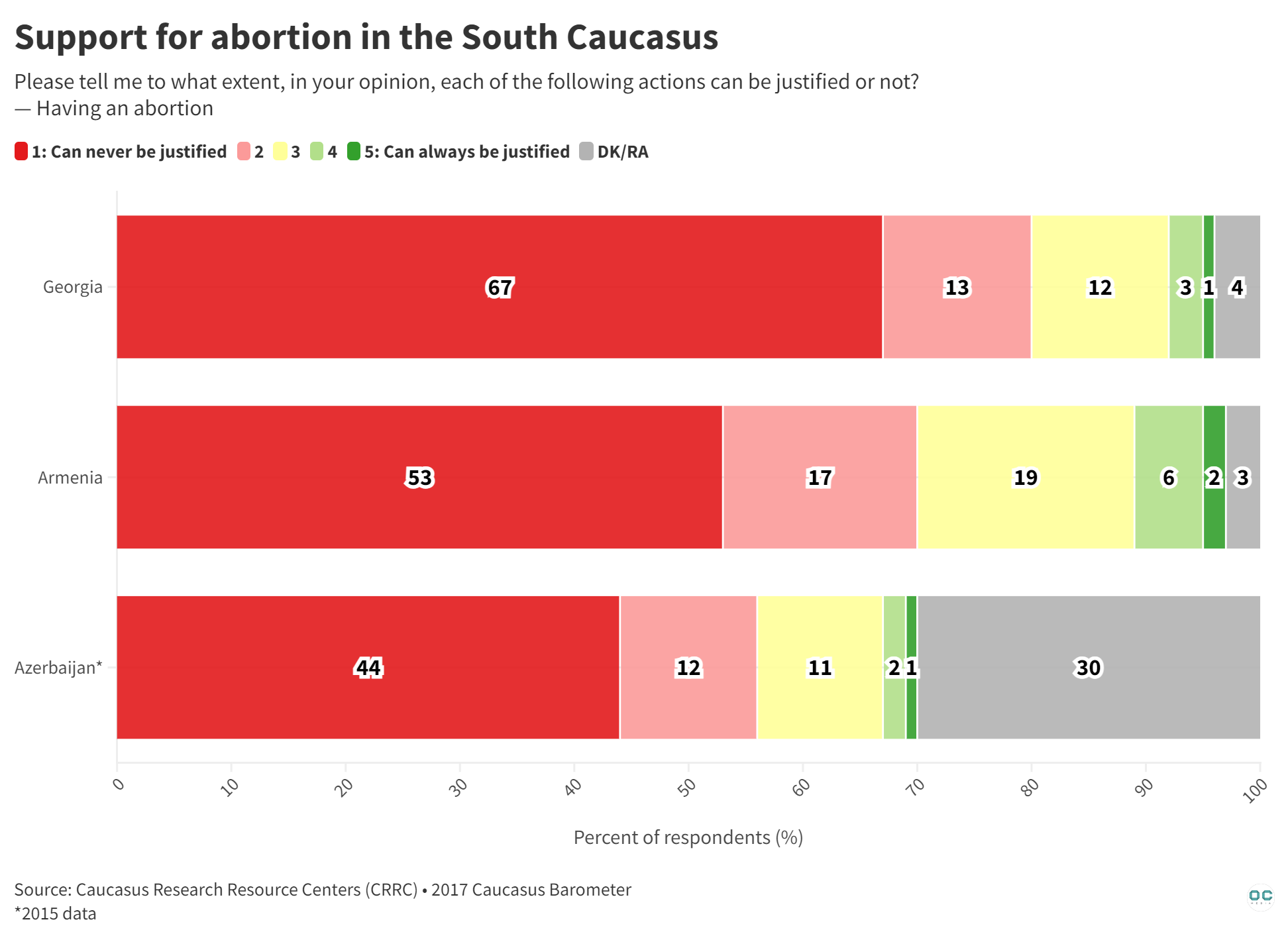Georgia’s Health Ministry has complicated the process a person has to go through to obtain an abortion, introducing mandatory counselling with a psychologist and social worker prior to the procedure, in a move that women’s rights defenders say could be aimed at providing a barrier to access.
A decree announcing the changes was published on the Georgian Legislative Herald’s website on 27 October, but was discovered by Georgian media on Tuesday.
From 1 January 2024, anyone seeking to terminate a pregnancy will be required to consult with an obstetric-gynaecologist, psychologist, and social worker, ‘under confidential conditions, in a doctor’s consultation room specially set aside for this purpose’.
This comes in addition to the pre-existing requirement to observe a five-day ‘cooling-off period’ prior to an abortion, with the new legislation adding that violation of the buffer period threatens a doctor’s right to practise.
Both international and local women’s rights organisations have stated that the Ministry of Health did not consult them before introducing the changes.
Baia Pataraia, head of Georgian women’s rights organisation Sapari, told OC Media that ‘they did not consult with anyone’, and added that it was not clear why the changes had been made.
She also stated that it was unclear how the additional costs incurred by the new procedures would be financed.
At present, abortions must be privately funded, as they are not provided as part of state healthcare. Pataraia stated that abortions are already unaffordable for many Georgians, driving people to seek ‘dangerous’ illegal abortions.
‘If it becomes more expensive, it will become even more unaffordable, and abortions will go underground’, she said, adding that consultation with social and psychological professionals should not be mandatory.
Pataraia suggested that measures should instead be taken to prevent unwanted pregnancies, and thereby prevent the need for abortions.
‘If the state wants to reduce abortions, then it should increase access to contraceptives and increase access to information’, said Pataraia. ‘Nothing is taught in the education system about reproductive health and contraception, which is the biggest problem. And contraceptives are extremely expensive — nobody finances anything, that’s why the number of abortions is high’.
According to Georgia’s National Statistics Service, in 2022, 16,600 women officially had an abortion in Georgia.
A UN Women 2021 report on gender equality in Georgia stated that use of ‘modern contraceptives’ was low in Georgia, with a substantial unmet need for family planning methods. It added that women still faced a number of barriers to accessing safe abortions.
Georgia’s Health Ministry did not respond to OC Media’s request for comment.
‘An additional barrier to access’
As in the previous legislation, abortions can be performed for non-medical reasons up to 12 weeks of pregnancy.
After 12 weeks of pregnancy, an abortion can be performed only for medical reasons listed in the decree. If continuing the pregnancy would threaten the life of a woman for a reason not listed in the decree, the case is considered by a commission.
The legislation does not specify what obligations social workers and psychologists meeting with people seeking abortions will have, raising questions amongst some as to what their aim or position will be.
Pataraia stated that in a positive scenario, the function of a social worker could be to support women in cases where an abortion is not their best option, as in the case of coercive abortion.
However, she added that social workers already struggled to identify and support women experiencing pressure or gender-based violence, due to ‘a huge shortage’ of social workers in Georgia.
‘[The changes] will not solve the problem, and it is not clear why they were introduced’, said Pataraia. ‘Consequently, there is reason to suspect that this is an additional barrier to prevent women from receiving this service.’
In answer to enquiries from OC Media, the Georgia office of the United Nations Population Fund (UNFPA) stated that their office had not been involved in the process.
The organisation stated that their official position would be announced after relevant expert groups and organisations, to whom they had sent the updated legislation, had assessed the changes.
While there is only sparse data available on public attitudes towards abortion in Georgia, in a 2017 CRRC survey, 67% of respondents stated that abortion could never be justified.

A 2019 study on women’s sexual and reproductive health and rights by Georgia’s Public Defender’s Office additionally found that many doctors and clinics refused to provide abortion services due to the religious beliefs of their staff.
Read in Armenian on CivilNet.
Read in Georgian on On.ge.









